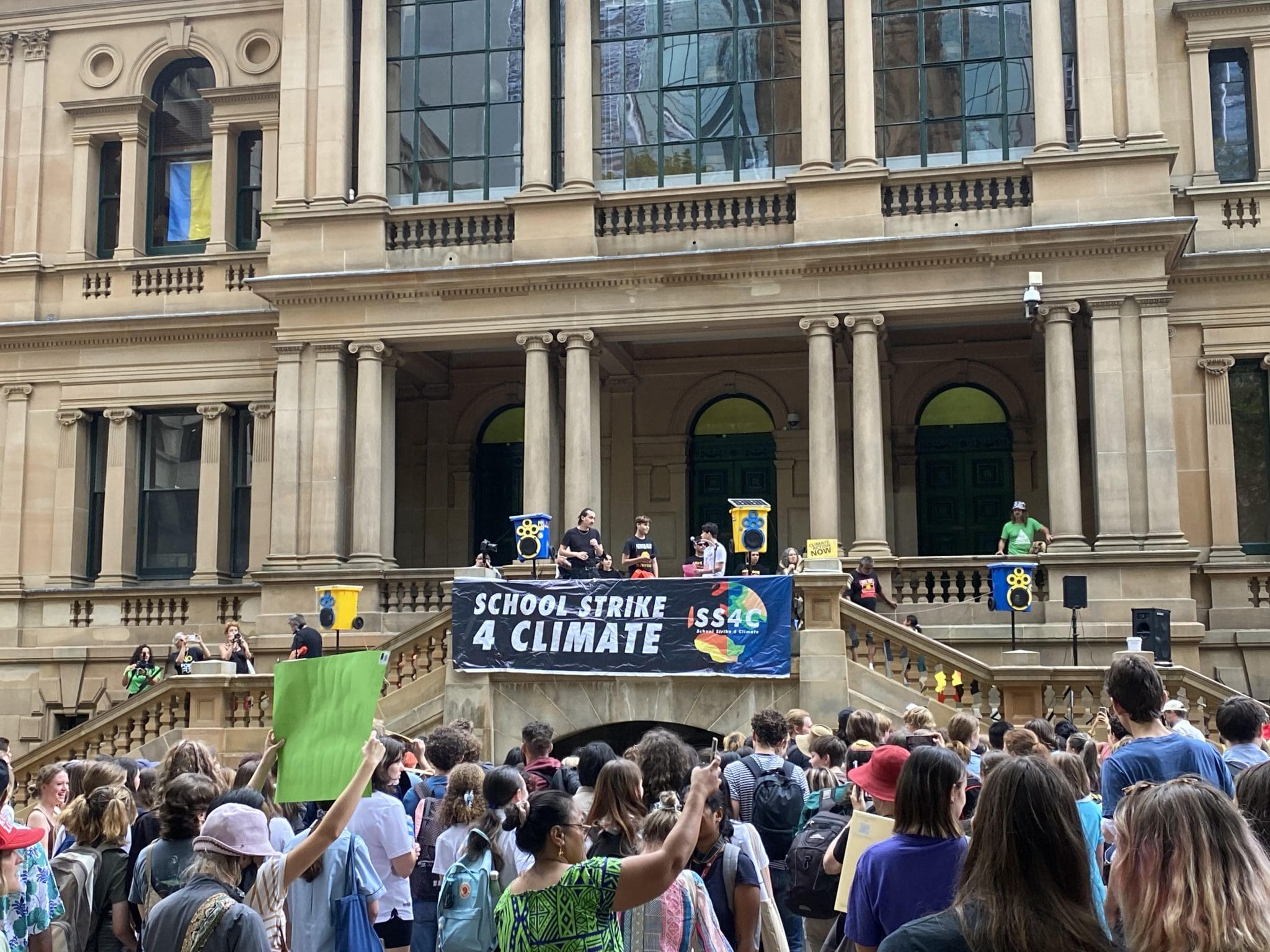Over one hundred and fifty students gathered outside Fisher Library on Friday to demand greater action on issues related to the ongoing climate crisis.
The protest, organised by the National Union of Students (NUS) in collaboration with the USyd Enviro Collective, demanded an end to all fossil fuel projects, especially those on aboriginal land, a faster transition to renewable energy, limited oil and gas drilling, and an end to protester repression.
The march from USyd campus gained protesters from the UTS contingent on its way through the city to Town Hall, joining primary and high school student activists as part of the global School Strike for Climate.
The march comes in the wake of the federal government’s approval of a new Santos gas project last week that will continue until 2077.
The protest was chaired by USyd Student Representative Council’s Environment Officer and USyd Enviro Collective member Maddie Clark, who began proceedings by acknowledging the close ties between environmental justice and indigenous liberation.
“Right now the Gomeroi people are fighting against the tribunal that has ruled in favour of the gas company Santos which is going to destroy indigenous land to create 850 new gas wells across the Pilliga forest,” said Clark.
Police presence was palpable following the recent arrest of 23-year-old student Cherish Kuehlmann for protesting outside the Reserve Bank, with five riot squad cars positioned beside the gathering.
Kuehlmann spoke to attendees about the importance of continuing to protest despite recently established laws that will chargeprotesters who peacefully obstruct a road or block an entrance charged with up to two years in jail and a $22,000 fine.
“It’s terrifying that they can throw climate protesters in solitary confinement, they can put us in jail for fifteen months, the fact that they can do this shows that police want to crack down on all of us now,” she said.
SRC Environment Officer Simon Upitis, a co-organiser of the rally, said that there was a clear discrepancy between the treatment of climate protesters and fossil fuel corporations.
“The police presence is pretty disgraceful, they come out in force to police our protest demanding climate justice but the real criminals working at fossil fuel companies are never charged with anything,” he said.
The Greens Member for Newtown, Jenny Leong, was there in support of the demands and in solidarity with those most vulnerable to the effects of the climate crisis.
“In regional communities, it is the oldest people, the youngest people, the people in insecure housing and struggling with the cost of living that are suffering with the climate emergency reality in our home state,” she said.
“But this is not just an issue in NSW, this is an issue around the globe and students worldwide have taken to the streets to go on strike because they realise that the future of this planet is absolutely dependent on us saying no to coal and gas.”
The protest at the University of Sydney was one of many happening globally as part of the School Strike for Climate initiative which sees students at all levels striking to demand climate action from political leaders.





